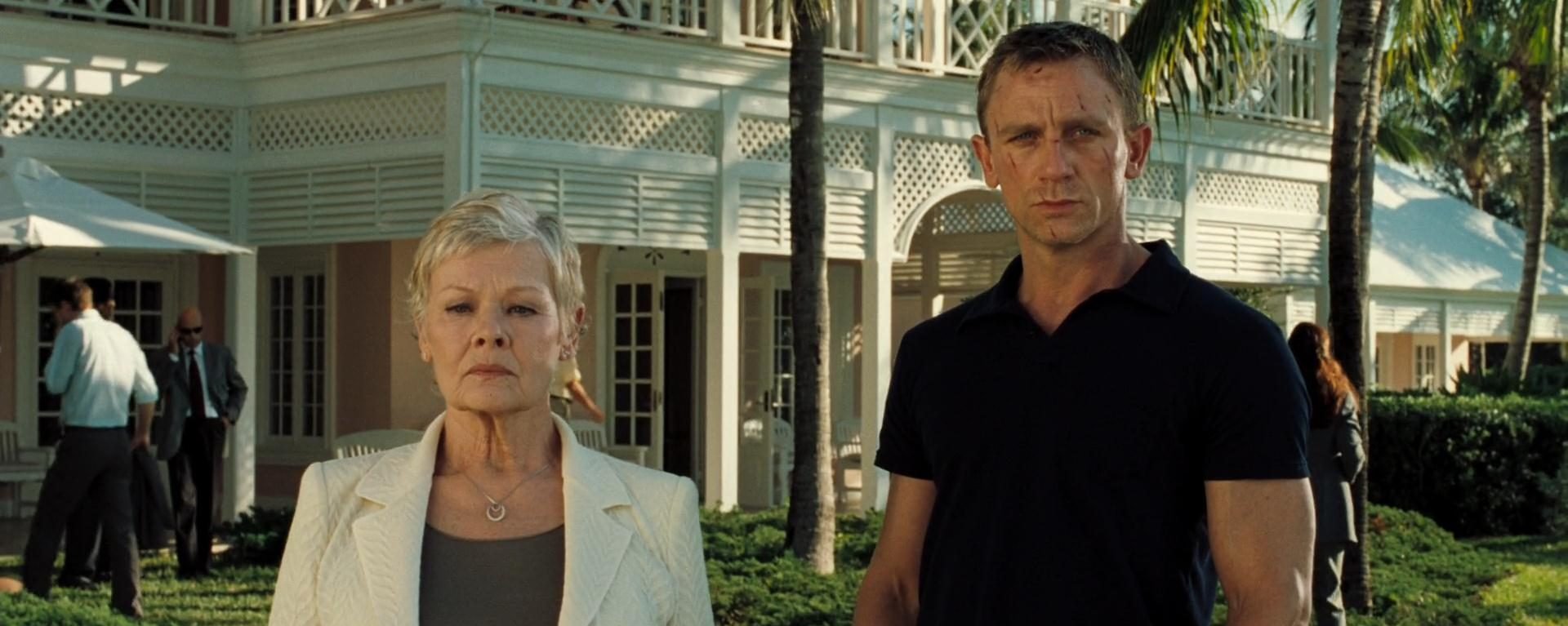
Casino Royale
In 2006 James Bond was back in the twenty-first instalment of the spy series: Casino Royale. Based on Ian Fleming's first novel, published in 1953, the film sees Bond obtain his licence to kill before setting out to foil the plans of Le Chiffre, a terrorist financier, with the help of treasury agent Vesper Lynd.
This was the third time Fleming's Casino Royale had been adapted for the screen. The first was for the US TV anthology series Climax! in 1954, with 007 reimagined as the American secret agent 'Jimmy' Bond. The second Casino Royale, released in 1967, was a spoof adaptation of Fleming's novel featuring David Niven, Peter Sellers and former 'Bond girl' Ursula Andress pitted against Orson Welles' Le Chiffre. However, in the late 1990s MGM and Eon Productions, the latter the principal force behind the Bond film franchise since Dr. No (1962), gained the rights to Fleming's Casino Royale and would reboot the series following Pierce Brosnan's final outing as Bond in 2002's Die Another Day.
The job of introducing the new Bond, Daniel Craig, fell to director Martin Campbell, who had also helmed Pierce Brosnan's first entry in the series, Goldeneye (1995). Drawing from Fleming's novel, Campbell and Craig reimagined the character as a visceral, violent, yet vulnerable hero. After the comedic stylings and fantastical effects of Brosnan's Die Another Day (2002), Casino Royale saw the franchise return to practical effects and update the action for an audience familiar with contemporary thrillers such as the Bourne franchise.
Casino Royale was first submitted to the BBFC in September 2006 for an advice viewing. The BBFC's Director and Senior Examiners determined that Casino Royale was largely containable at the distributor's requested 12A, with the exception of a torture sequence. Derived from Fleming's novel, this narratively significant scene sees Bond stripped naked and tied to a chair in which the wicker seat has been removed. Le Chiffre proceeds to beat Bond's genitals using knotted rope in the hope that he will reveal vital information. However, Bond remains defiant until a mysterious assassin appears and kills Le Chiffre.
In 2006, BBFC Guidelines stated that at 12A: 'Mature themes are acceptable, but their treatment must be suitable for young teenagers [...] violence must not dwell on detail. There should be no emphasis on injuries or blood [...] dangerous techniques should not dwell on imitable detail or appear pain or harm free.'
To comply with the Guidelines, the distributor was informed that the torture scene would have to be reduced in order to achieve a 12A, removing some of the focus on Bond's suffering as well as the suggestion that Le Chiffre is deriving sadistic or sexual pleasure from the violence.
In the formal submission of the film the torture scene is notably different, particularly in the first half of the sequence where close-up shots of Bond's agonised face, his dribbling saliva following one blow, and Le Chiffre teasingly running the rope over Bond's bare chest were either removed or replaced with more distant shots that reduced the intensity of the sequence. The focus was now weighted in the second half of the scene, in which Bond's resilience and dark sense of humour emerges, mocking Le Chiffre and asking him to scratch "an itch…down there." His defiance is shown to infuriate and humiliate Le Chiffre, subtly shifting the sense of power and control in Bond's favour.
The sequence is discreetly constructed, using high contrast light and shadow, careful composition, reaction shots, and sound to create the impression of Bond's pain and the method of torture without showing graphic detail. The examiners also noted that Bond films are something of a 'known quantity', and many viewers will therefore have an expectation that Bond may be captured, tortured, or placed in precarious situations, but that he will always survive and overthrow the villain. From the laser running between Bond's legs in Goldfinger (1964) to the micro-drill torture in Spectre (2015), enduring and escaping torture is an established trope of the franchise. Casino Royale is therefore rated 12A for theatrical release and 12 on DVD and BluRay, and carries the BBFCinsight 'one scene of torture and strong action violence'.
During the film's theatrical run the BBFC received over 100 complaints from members of the public who felt it was too violent for 12A, perhaps because of the unexpected tonal shift from the preceding Brosnan films. Nevertheless, Casino Royale was a critical and commercial success, and in 2012 an extended cut was submitted to the Board that re-instated some of the previously removed material from the torture scene. As such, the extended cut is classified 15.